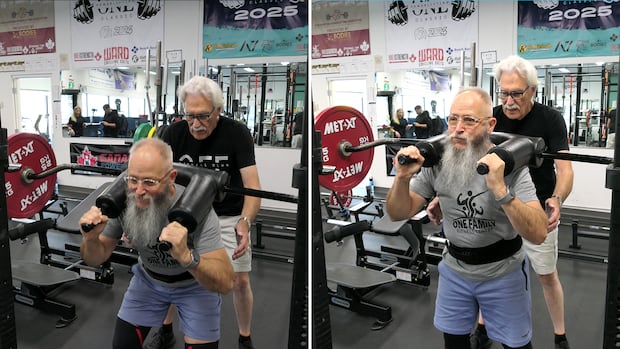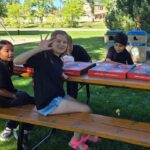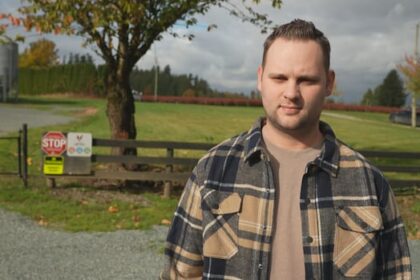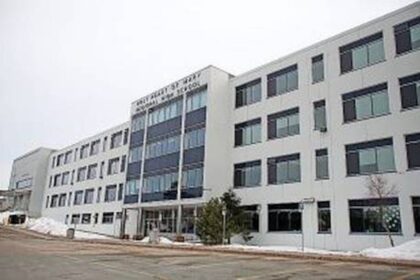HealthPeople can take action at any age to become more resilient, according to researchers involved in a recent Canadian study tracking older people with a variety of health issues. It found that those who were physically active, socially connected and psychologically well were more likely to bounce back from a period of bad health or illness.Study found older adults who are physically active, socially connected, psychologically well recover betterJennifer Yoon · CBC News · Posted: Oct 13, 2025 4:00 AM EDT | Last Updated: 4 hours agoKen Martens, right, provides a spot for Greg Karman as he lifts weights at Winnipeg’s One Family Fitness Centre. Exercise and social interactions may help older adults recover more successfully after a period of bad health, a new report suggests. (Jeff Stapleton/CBC)Ken Martens, 79, smears chalk all over his hands and gets ready for his workout. He deadlifts 230 lbs and benches about 120 lbs.Looking at him today, you wouldn’t guess that he almost died last year. After a series of blackouts and falls, he was rushed to the hospital in February 2024, where he learned his heart was failing. Martens now has a pacemaker, which sends electrical impulses to his heart 24/7. And after months of working out and socializing at Winnipeg’s One Family Fitness Centre, he’s feeling like a new man. “I feel like I’m in better or as good health as I’ve ever been,” he said. His story isn’t as rare as you might think, according to researchers. Many older people can, and do recover from periods of bad health — about a quarter, suggests a recent Canadian study published in peer-reviewed megajournal PLOS One. “A lot of people say, for older adults, it’s an inevitable decline until you are in disability, then death,” said Esme Fuller-Thomson, one of the study’s co-authors. “That was not our finding here. Many people who were struggling were able to reclaim optimal well-being,” said Fuller-Thomson, who is also a professor and the director of the University of Toronto’s Institute for Life Course and Aging.The study followed more than 8,300 older Canadians with a variety of health issues — like psychological problems, physical ailments or chronic pain — over three years. They found that those who were physically active, socially connected and psychologically well were more likely to bounce back from a period of bad health or illness.Martens, 79, started powerlifting after a health scare last year. Now, the Winnipeg senior he says he feels better than he has in years. (Jeff Stapleton/CBC)“We find it very encouraging as well as inspiring,” said Mabel Ho, a research affiliate at the University of Toronto’s Faculty of Social Work and one of the study’s co-authors.She says the study shows people can take action at any age to improve their health and quality of life. “Keeping yourself physically active, not being obese, not smoking, having good sleep — those are things that we can all do,” Ho said.And there’s a role for those around the person who’s recovering, too.WATCH | How exercise can benefit those recovering from colon cancer:Study finds exercise improves life expectancy, decreases recurrence of colon cancerPatients recovering from colon cancer say exercise helped them to get better. Research shows it also decreases the risk of death and recurrence of cancer.The ‘epidemic’ of lonelinessAnother factor linked to how effectively older people recover from injury or illness is their psychological and social well-being, the researchers say.“To have someone to talk to, someone who loves you, someone to confide with you — that social connection is also very important,” Ho said. Study co-author Mabel Ho says social and psychological well-being appear to be strongly linked to how well older adults bounce back from health issues. (Jennifer Yoon/CBC)Study participants who didn’t have strong friendships or relationships fared poorly, with fewer than one in 10 recovering.“Loneliness is an epidemic among older adults,” said Fuller-Thomson. She’s especially worried about two groups: those who have recently retired, and those who have been widowed. “The workplace, sometimes that’s been your major location of social connections. And widows and widowers tend to struggle,” said Fuller-Thomson. “Because not only did they lose their best friend, sometimes they lost their social co-ordinator.”Greg Karman, 63, is going through that grief right now. After his recent retirement, he lost his wife of 36 years in September. But less than a week after she died, he found himself back in the gym where they would lift weights together.“I can tune out the rest of the feelings and work out for a few hours — it’s a part of the [grieving] process,” he said. Karman, 63, started lifting weights with his wife. A month after her death, he says coming back to the gym where they worked out together is helping him through his grief. (Jeff Stapleton/CBC)The exercise helps, but so do the people, Karman says. Everybody at the gym knew his wife, Manny Martins-Karman. Now, he’s making more of an effort to get to know her friends at the gym and hold on to that social network. “Everyone here is very, very supportive.” Having access to psychological support can also help people recover from difficult periods, says Fuller-Thomson. Some studies have noted that psychological treatments such as cognitive behavioural therapy can be effective for older adults struggling with depression, anxiety , or even insomnia. WATCH | How predicting health decline can help seniors age well:Predicting health decline is key to helping seniors age well, advocate says Susan Walsh, Newfoundland and Labrador’s seniors’ advocate, released a new report on Thursday called An Ounce of Prevention is Worth a Pound of Cure. Walsh says planning ahead before a person’s decline in health is key in dictating their future.Checking in on loved onesDr. Samir Sinha, a geriatrician at Sinai Health in Toronto, says he sometimes hears pessimism from his patients when they realize how quickly they can lose function as they age.“People say, ‘Well, I’m older, so I don’t know if I can actually recover what I’ve lost.’ It’s incredibly demoralizing when people see how quickly they can lose function,” said Samir, who was not involved with the study. This study reminds people they can be resilient in some way, no matter their age, Sinha says.Dr. Samir Sinha, a geriatrician at Sinai Health in Toronto who specializes in treating older adults, hopes family members will check in on older relatives over Thanksgiving to make sure they’re well-supported. (Turgut Yeter/CBC)“It’s amazing when you can help turn peoples’ attitudes around and remind them there are many things they can do,” he said. “You can give people hope.”Sinha says Thanksgiving is a good time to check in on loved ones, offer support and remind older relatives that they’re not alone.“I think Thanksgiving is a great time where we get together, see how we are doing in person, and then really kind of [provide] encouragement and support to our loved ones.”ABOUT THE AUTHORJennifer Yoon covers the latest health news for CBC News on television, radio and digital. You can reach her at jennifer.yoon@cbc.ca.
Wednesday, 4 Mar 2026
Canada – The Illusion
Search
Have an existing account?
Sign In
© 2022 Foxiz News Network. Ruby Design Company. All Rights Reserved.
You May also Like
- More News:
- history
- Standing Bear Network
- John Gonzalez
- ᐊᔭᐦᑊ ayahp — It happened
- Creation
- Beneath the Water
- Olympic gold medal
- Jim Thorpe
- type O blood
- the bringer of life
- Raven
- Wás’agi
- NoiseCat
- 'Sugarcane'
- The rivers still sing
- ᑲᓂᐸᐏᐟ ᒪᐢᑿ
- ᐅᑳᐤ okâw — We remember
- ᐊᓂᓈᐯᐃᐧᐣ aninâpêwin — Truth
- This is what it means to be human.
- Nokoma











